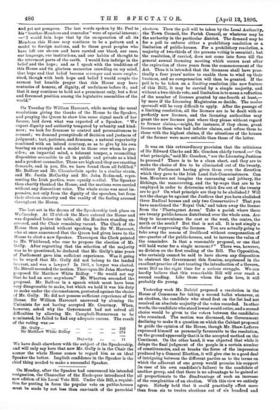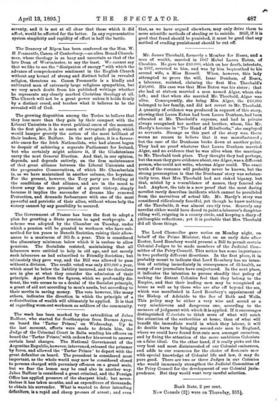Yesterday week Mr. Dalziel proposed a resolution in the House
of Commons for taking a second ballot whenever, at an election, the candidate who stood first on the list had not received an absolute majority of the votes recorded. In other words, the candidate who stood lowest would retire, and a second choice would be given to the voters between the candidates who remained. The motion was discussed, the Government declining to make it a question on which the Cabinet proposed to guide the opinion of the House, though Mr. Shaw-Lefevre expressed himself as personally favourable to the resolution, on the ground apparently that it is the accepted method on the Continent. On the other hand, it was objected that while it delays the final judgment of the people in a certain number of constituencies, and so breaks the force of the impression produced by a General Election, it will give rise to a good deal of intriguing between the different parties as to the terms on which the adherent of one group would promise his support (in case of his own candidate's failure) to the candidate of another group, and that there is no advantage to be gained at all proportionate to the disadvantage of such an increase of the complexities of an election. With this view we entirely agree. Nobody held that it could practically affect more than from six to twelve elections out of six hundred and seventy, and it is not at all clear that those which it did affect, would be affected for the better. In any representative system simplicity and rapidity of effect is half the battle.



































 Previous page
Previous page